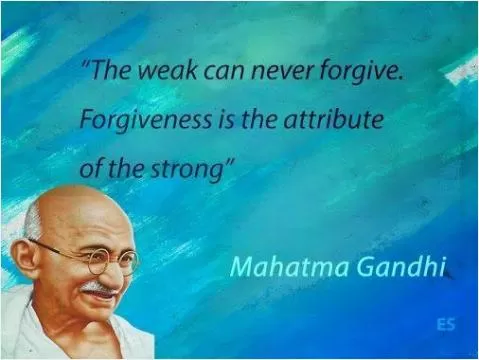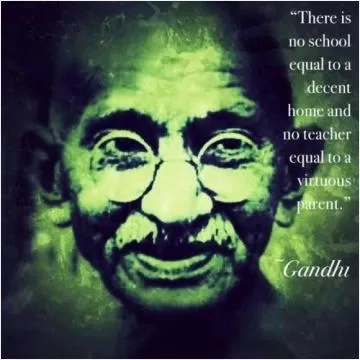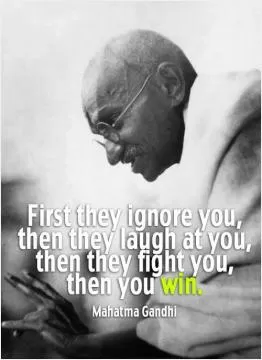Religion is a matter of the heart. No physical inconvenience can warrant abandonment of one's own religion

Religion is a matter of the heart. No physical inconvenience can warrant abandonment of one's own religion
Mahatma Gandhi, the revered leader of the Indian independence movement, was a staunch believer in the power of religion as a deeply personal and spiritual matter. He famously said, “Religion is a matter of the heart. No physical inconvenience can warrant abandonment of one's own religion.” This statement encapsulates Gandhi’s unwavering commitment to his own religious beliefs and his belief in the importance of staying true to one’s faith, regardless of external pressures or challenges.Gandhi’s own religious beliefs were deeply rooted in Hinduism, but he was also influenced by the teachings of other religions such as Christianity, Islam, and Jainism. He believed that all religions ultimately led to the same truth and that it was important for individuals to follow their own spiritual path with sincerity and devotion. Gandhi’s commitment to his own religion was evident in his daily practices, such as prayer, meditation, and fasting, which he saw as essential for spiritual growth and self-discipline.
Throughout his life, Gandhi faced numerous physical inconveniences and hardships, including imprisonment, violence, and persecution. However, he never wavered in his commitment to his religious beliefs. He saw these challenges as opportunities for spiritual growth and self-reflection, and he believed that they only strengthened his resolve to stay true to his principles.
Gandhi’s belief in the importance of religion as a matter of the heart was also reflected in his approach to interfaith dialogue and cooperation. He believed that people of different religions could come together in a spirit of mutual respect and understanding, and that they could work together to create a more just and peaceful world. Gandhi’s commitment to religious tolerance and pluralism was a central tenet of his philosophy of nonviolence, which he saw as a universal principle that transcended religious and cultural boundaries.












 Friendship Quotes
Friendship Quotes Love Quotes
Love Quotes Life Quotes
Life Quotes Funny Quotes
Funny Quotes Motivational Quotes
Motivational Quotes Inspirational Quotes
Inspirational Quotes